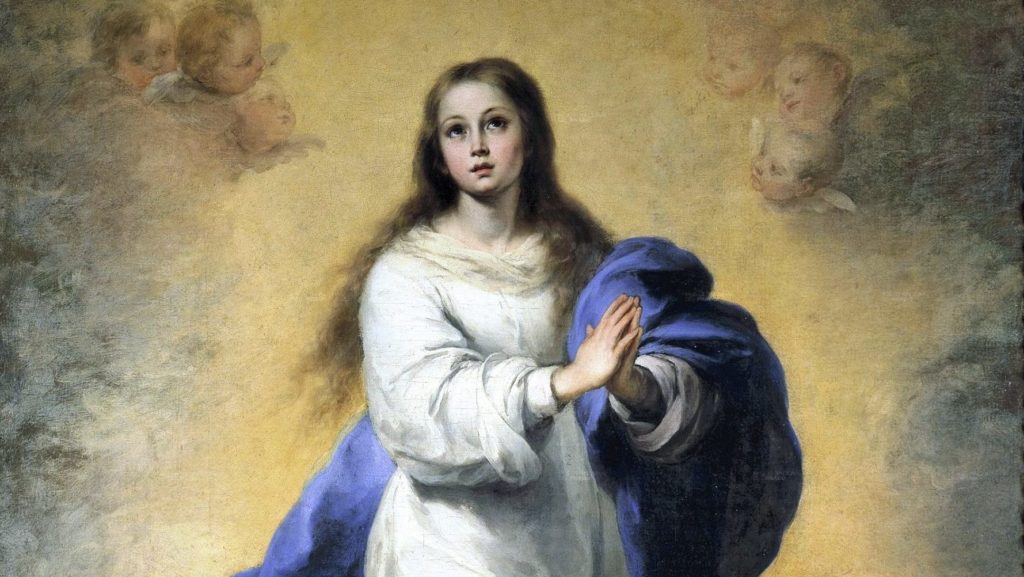The Immaculate Conception is the doctrine that God preserved Mary from all stain of original sin. From the first moment of her conception in the womb of her mother, she lived in a state of sanctifying grace won for her by the merits of her Son, Jesus. Thus the angel’s greeting to Mary, “Hail, full of grace,” was uttered years before Jesus won grace for mankind. Yet Mary was, even then, “full of grace.”
St. John Henry Newman found it fitting for Christ to be born of a sinless mother. “Mary was no mere instrument in God’s dispensation. The Word of God … did not merely pass through her, as he may pass through us in Holy Communion. It was no heavenly body which the Eternal Son assumed … No, he imbibed, he sucked up her blood and her substance into his Divine Person. He became man from her ... Was it not fitting … that the Eternal Father should prepare her for this ministration by some preeminent sanctification?”
The Immaculate Conception is implicit in the works of the early Church Fathers. St. Ephrem of Syria testified to it in the fourth century, as did St. Augustine in the fifth. Augustine said that it would be an offense against Jesus to say that his mother was a sinner. All have sinned, said Augustine, “except the holy Virgin Mary, concerning whom, for the honor of the Lord, I wish no question to be raised at all, when we are treating of sins. After all, how do we know what greater degree of grace for a complete victory over sin was conferred on her who merited to conceive and bring forth him whom all admit was without sin.”
Still, the Church did not make a dogmatic pronouncement on the Immaculate Conception until 1854. In the meantime, some Christians — even saints — worried that the proposition might somehow nullify her human nature or Christ’s saving work. But Pope Pius IX addressed these concerns as he defined the dogma: “that the most Blessed Virgin Mary, in the first instant of her conception, by a singular grace and privilege granted by Almighty God, in view of the merits of Jesus Christ, the Savior of the human race, was preserved free from all stain of Original Sin.”
He made it clear that the Immaculate Conception is a unique grace of God, just as the incarnation of Jesus is a unique event in history. Next, he stated that this singular grace was won for Mary by Jesus, her Savior. And, finally, he emphasized that the Immaculate Conception is a divine act of preservation — a work of God, and not of Mary herself.
The Immaculate Conception is a fruit of the redemption applied retroactively to Mary; for the redemption was always “in view” for the eternal God. Christ’s redemption applies to you and me, though we could not be at Calvary — and it applied to Mary at the moment of her creation, though Christ’s saving death was still years away. Her redemption was an act of preservation, while for all others it is an act of deliverance.

